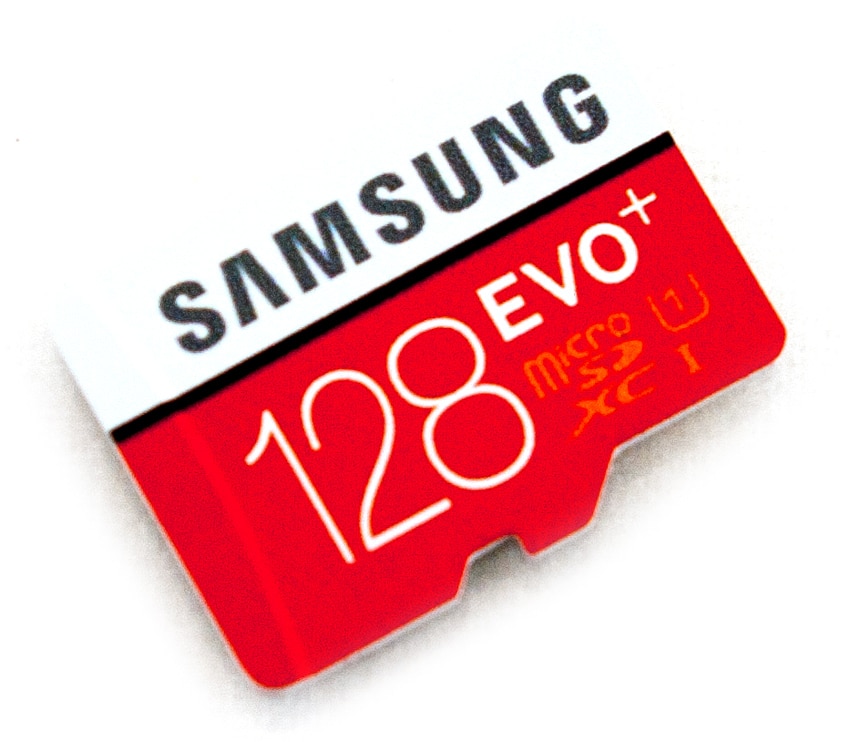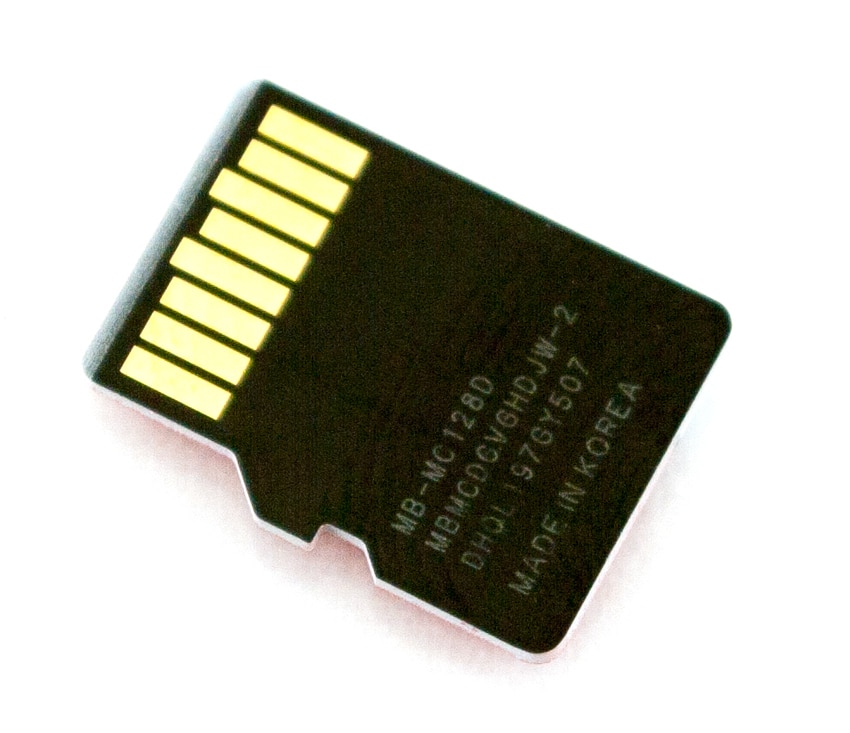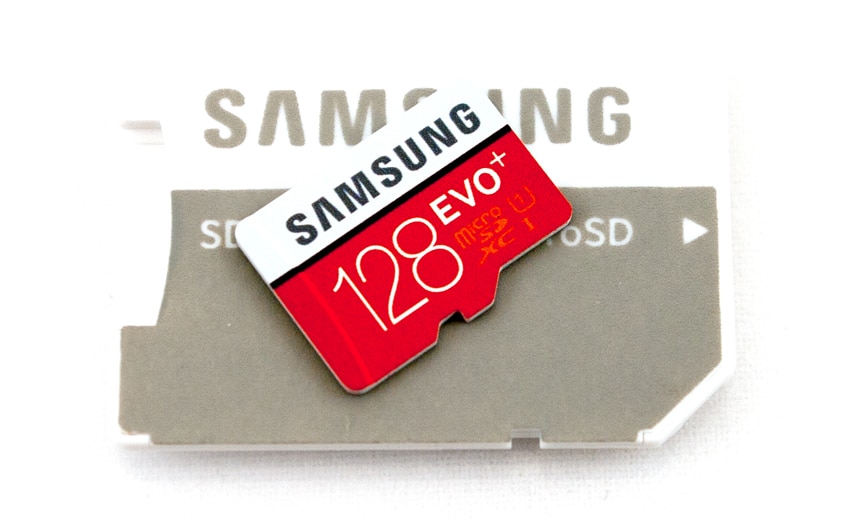
Samsung has once again added to their industry leading portfolio of memory cards with the Plus versions of their very impressive PRO and EVO lines. For this review, we will be looking at the Samsung EVO Plus line of microSD memory cards (or Evo+), which are specifically designed for content creation and the increasing storage demands of the newest smartphones, tablets, compact cameras and Full HD camcorder users. Last year, we looked at the 32GB version of the Samsung EVO line, and found it to be easily one of the best available microsSD cards on the market for its class, offering great performance at an unbeatable price. The new Plus version improves on its predecessor in every way, including a boost in storage capacity to 128GB, which is double the maximum of the previous EVO line.

As was the case with its older brother, the Evo Plus is a more value oriented card compared to the Pro Plus line; however, it is still specced to offer read and write speeds of 80MB/s and 20MB/s respectively, which is a significant boost in performance over its predecessor. The Evo Plus line is also extremely durable for such a tiny device. Coupled with ability to withstand up to 24 hours in seawater, Samsung indicates that the cards are water, temperature, magnetic and x-ray proof. They are also built to survive in temperatures from -25° all the way up to 85° Celsius and can protect user data from potential damage caused by airport X-ray machines. In addition, they can resist up to 13 times the magnetic force of home theater speakers.
The Samsung Evo Plus family of microSD cards are available in capacities of 32GB, 64GB, and 128GB. All cards are backed by a limited 10-year warranty.
Samsung EVO Plus Specifications
- Product Type: microSDHC Memory Card
- Class: Grade 1, Class 10
- Series: EVO Plus
- Interface: UHS-I, compatible to HS interface
- Capacities: 128GB
- Performance:
- Read : up to 80MB/s with UHS-1 interface
- Write : up to 20MB/s with UHS-1 interface
- Warranty: 10-year limited
Design and build
The Samsung Evo plus line continues with the recently rebranded design of the company’s flash cards, with a pretty slick looking exterior. The only change from the previous Evo line is the color, which is now a sharp red opposed to the previous use of orange.
The Samsung logo is boldly located at the top of the card with capacity size, microSD card type and speed class designation displayed at the bottom displays, the former which is Class 10, UHS-1 compatible to HS interface. Flipping the card over shows the 9 connector pins as well as the model number. In addition, the backside of the EVO plus card also indicates that the card was manufactured in Korea.
Like all Samsung microSD cards, the Evo plus line is bundled with an SD adapter for compatibility with full-sized SD card slots.
Performance
In this review, we will include the following comparables:
It should be noted that the SanDisk Extreme Pro is one of the company’s top offerings.
Using our Consumer Testing Platform, we measured transfer speeds from the 128GB Samsung Evo Plus microSD card with IOMeter. Here, sequential transfer rates were recorded with reads and writes of 84.9MB/s and 19.7MB/s respectively, the latter which is nearly double the speed of its predecessor, which posted 44.4MB/s read and 19.1MB/s write. The SanDisk Extreme Pro microSDXC achieved reads of 90.9MB/s and writes of 74.7MB/s while the Samsung’s microSDHC Plus 32GB card posted 71.44MB/s read and 20.08MB/s write.
When comparing random large-block transfers, the Samsung Evo Plus recorded 79.5MB/s read with 3.9MB/s write. Though it measured a very poor write activity, the new Evo Plus had a serious increase in read performance once again. With that said, looking at the SanDisk Extreme Plus showed read and write speeds of 85.9MB/s and 43.8MB/s respectively, while the SanDisk Extreme PRO microSDHC hit 87.6MB/s read and 13.4MB/s write. The Samsung Evo posted 43.9 MB/s read and 32.0MB/s write.
Conclusion
The new Samsung EVO Plus microSDs are very well suited for mainstream consumers looking to meet the ever-growing storage requirements of smartphones, tablets, and other mobile devices that support UHS Speed Class 1 and Class 10 video recording ratings. These tiny devices are also a tough bunch of memory cards, as Samsung upgraded the Evo line even further with increased water, shock, magnet, X-ray and temperature protection. The new Plus line received a substantial boost in storage as well with 32GB, 64GB, and 128GB available capacities, which is double the maximum capacity compared to its predecessor.
As far as performance goes, performance was unsurprisingly impressive for its class. When we put it through our tests, it measured sequential reads and writes of 84.9MB/s and 19.7MB/s respectively, while random activity boasted 79.5MB/s read with 3.9MB/s write. Comparing these results to its predecessor, which posted sequential read and write performance of 44.4MB/s and 19.1MB/s respectively (while random hit 43.9 MB/s read and 32.0MB/s write), the new Samsung Evo Plus microSD cards certainly offer a significant upgrade to the previous EVO line in the important read column.
Pros
- Great overall performance
- Competitive pricing
- Reliability features
Cons
- Random large-block write was very slow
Bottom Line
Samsung has made an impact on the market once again with their new Evo Plus line, offering fantastic performance at a great dollar per GB ratio.


